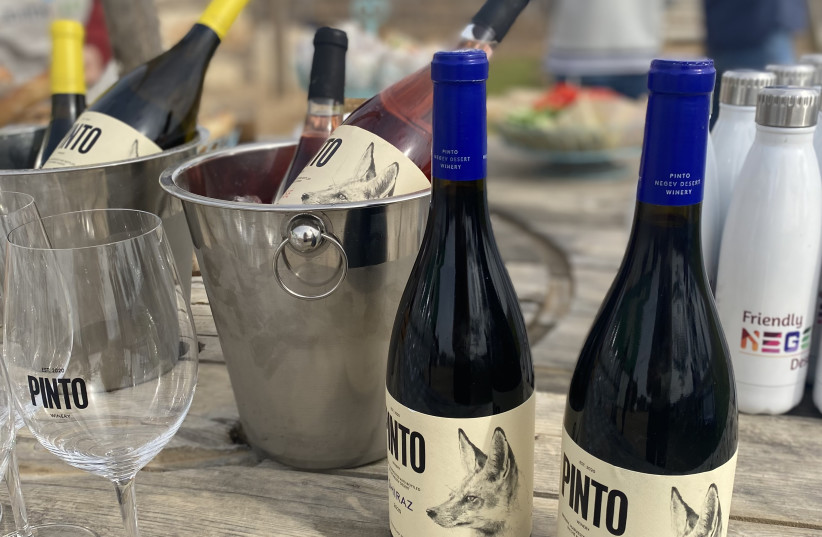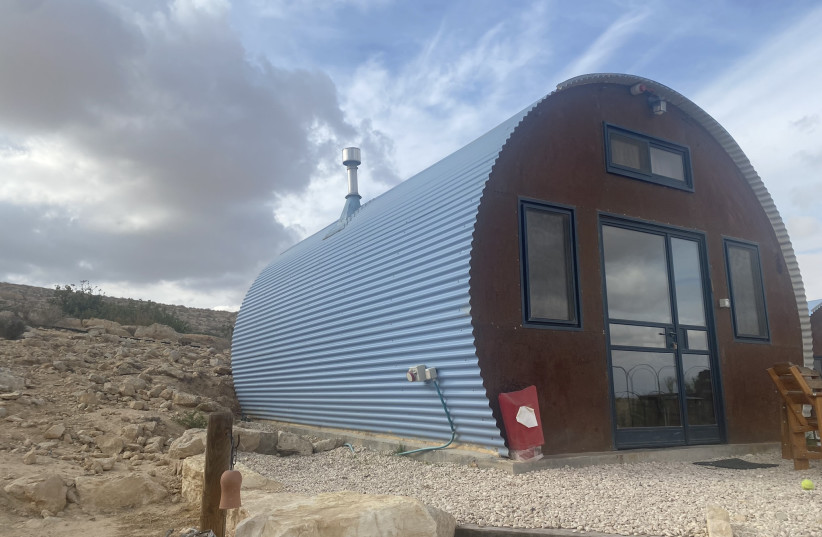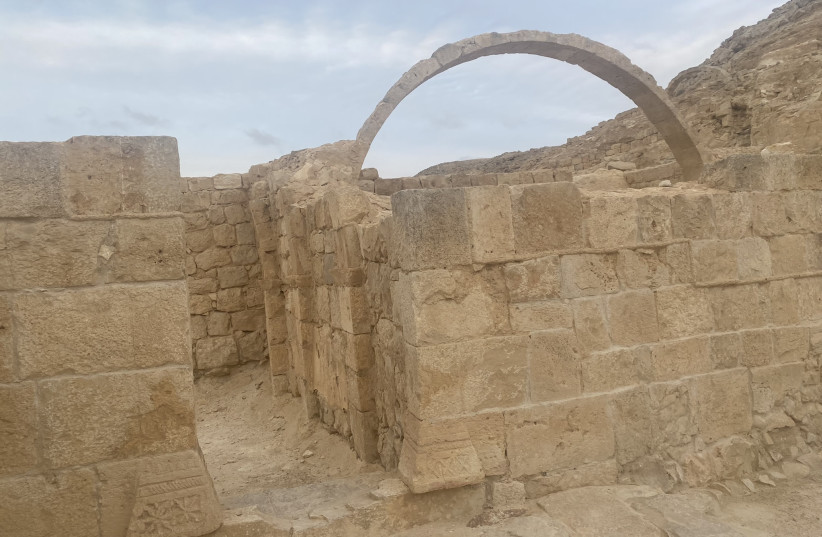It’s now been two years since the pandemic became part of our lives. Tourism in some parts of the country were hit hard, while other regions are thriving. Thankfully, in the Har Hanegev region, agritourism has really taken off, especially once the Tourism Ministry began promoting certain programs.
One example of this is the Har Hanegev Tourism Partnership, which has brought together the Yeroham Municipality, Ramat Hanegev and Mitzpe Ramon, promoting the areas’ many natural treasures. One such program is sponsored by the Merage Foundation, which aims to promote the Negev as a global magnet for agritourism, especially for the region’s boutique wine industry.
1. Lehem Zeh
In the culinary tourism field, you’ll find Lehem Zeh – A Cooperative Kitchen in the Desert, which is run by Ariel Pollock Star, who made aliyah from Pittsburgh. Like many others who made their home in the Negev, Pollock Star fell in love with the desert soon after she moved to the country.
Pollock Star lives in the Negev with her husband and four kids, and during the first COVID-19 lockdown, she began rethinking how best to rearrange her work, home and leisure time. One aspect that was extremely difficult for Ariel was not being able to visit her extended family back in the US. The American food she most yearned for was bagels, so she set about learning how to make them at home. The first time she tasted one from a successful batch, she became so emotional that she started crying. That was the moment she realized how intertwined our psychological well-being is with the yearning for baking and enjoyment of freshly baked bread, and how much bread connects us with our roots.
Slowly, Ariel began sharing her homemade creations with her friends and neighbors. Not long after, she began selling her unique style of bread. At first, she was shocked to discover that very few people in Yeroham had ever tasted an American bagel, since in her mind it was the most Jewish type of bread that exists. So, she started offering bread-making workshops and even created a local bakery cooperative, in which small-time bakers who worked out of their homes could join forces under one brand name and become certified as kosher under one umbrella. Currently, they run a large kitchen in the Yeroham commercial district, which also offers workshops and runs a store.
Price: Workshops cost between NIS 120-200.
Details: www.facebook.com/lehemzeh/

2. Pinto Winery
When people hear about Israeli wines, they usually visualize a quaint winery in the green hills of the North. It just so happens, though, that many of Israel’s successful boutique wineries are located in the South. For example, Pinto Winery in Yeroham was established by one of the region’s most generous families, which has labored considerably to develop the Negev. The Pinto Winery is currently constructing a new visitors center in the midst of its 10-hectare (25-acre) vineyard, and manager David Pinto is almost always on site to lead wine tastings and tours, and to welcome visitors.
Price of wine tasting (3 different types of wines): NIS 95. Cheese and bread platters also available for purchase.
Details: (054) 479-3880.

3. Carmey Avdat
If you’ve never been to Carmey Avdat, then you are in for an incredible surprise. Founded in 1998 by Eyal and Hana Yizraeli, Carmey Avdat offers quaint bed and breakfast units that cost NIS 1,000-1,200 per night. This includes breakfast and wine tastings. In addition, guests will learn about the fascinating history of the region from archaeological excavations that were carried out in the region by the Antiquities Authority. Local farmers also take advantage of terraced hills that were used many centuries ago to grow vines. The grapes are used to produce 6,000 bottles a year (most of which are enjoyed by locals).
The winery is open daily for wine tastings from 9:00 a.m. to 4:30 p.m.
Price of wine tasting, (6 different types of wines): NIS 35. A short film, free of charge, is also available to guests. A tasty snack platter is also available for purchase in the café.
Details: (052) 270-5328.

4. Avdat
One of the country’s best national parks? That would be Avdat. There you’ll find ruins from an ancient Nabataean city, which was an important point on the Incense Route, an ancient network along which incense, spices and luxury goods were transported from North Africa all the way to the Middle East to India, and back. Avdat is located just east of Highway 40, between Mitzpe Ramon and Sde Boker.
Ancient Avdat was built on the edge of cliff overlooking Nahal Tzin. Avdat was the last stop for traders coming from Gaza on their way to Saudi Arabia. The city was named after Nabataean King Obodas, since he was buried there in the first century BCE. The city had recently been captured from the Greeks, but was ruined during the Byzantine Period in the early 7th century CE, when an earthquake struck the area, destroying Avdat.
Excavations were carried out at Avdat from 1958-1961, and many tourists are attracted to the national park to see firsthand to see the incredible natural surroundings, as well as the discoveries uncovered during excavations. In fact, excavations are ongoing on the site, and new finds are still being uncovered. Visitors are welcome to drive around the national park on their own, but I recommend taking advantage of the tours led by guides who are extremely knowledgeable about the site. Details and registration are available on the site’s website.
Most of the artifacts found at Avdat are on display in the acropolis, which is the upper city near the park’s entrance. After entering the park, visitors are welcome to watch a short film that shows 3D models of the ancient site and archaeological findings. Afterwards, you can continue on to the ancient bathhouse, which, miraculously, is beautifully preserved. You’ll see the Nabataean dressing room and steam room, with each room constructed so that they would be a certain temperature. The water was pumped in from a 60-meter-deep well.
Next, you can move on to the fortress, which is located smack in the middle of the ancient city. The fortress served as both a shelter, as well a place for social gatherings. There are also two Byzantine churches that were built in the 5th and 6th centuries, as well as a Roman burial cave, with 20 burial niches dug into the bedrock. More than 200 caves have been uncovered within Avdat National Park, and a new circular trail called the City of Caves has been created, which visitors can take to discover all of the site’s secrets.
Price: Children NIS 14 and adults NIS 28.
Pre-registration: en.parks.org.il/reserve-park/avdat-national-park/#13
Translated by Hannah Hochner.
